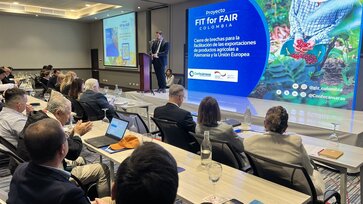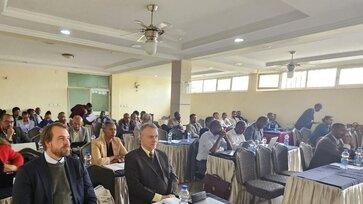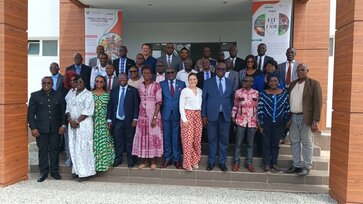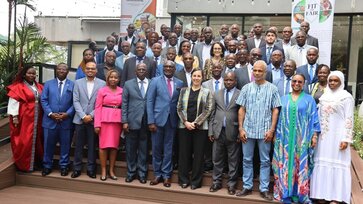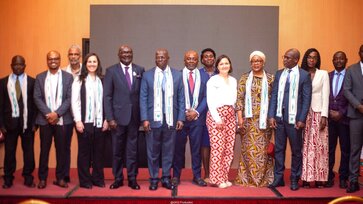FIT for FAIR
Agricultural supply chains sustain billions of livelihoods but are often linked to severe environmental and social impacts, such as deforestation, child labour, and poor working conditions. To address these challenges, Germany and the EU have introduced due diligence laws—including the German Supply Chain Act (LkSG), the EU Deforestation Regulation (EUDR), and the upcoming EU Corporate Sustainability Due Diligence Directive (CSDDD)—requiring companies to take concrete action to identify, prevent, address and mitigate environmental- and human rights risks throughout their global value chains.
The project at glance
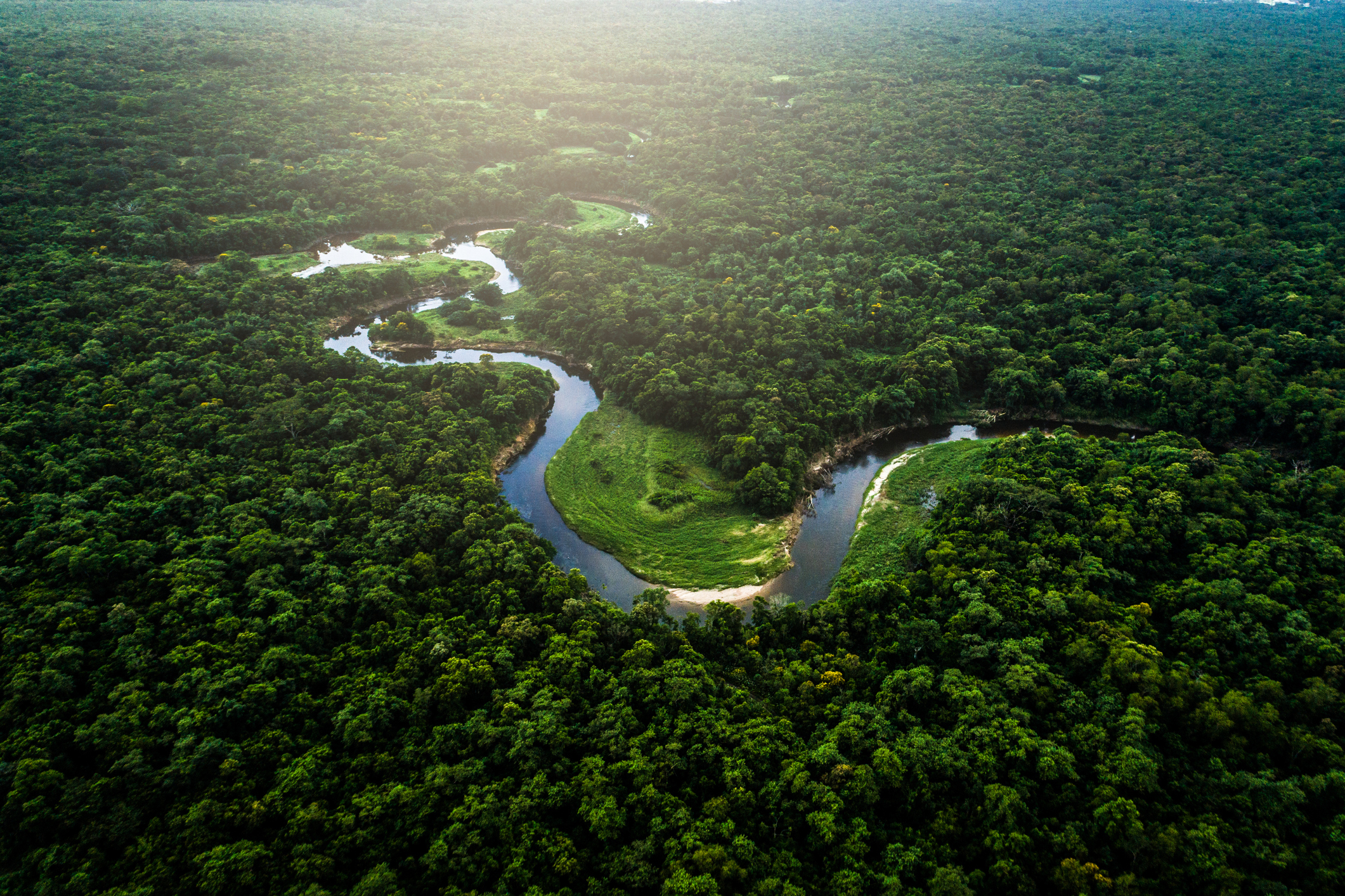
Project goals
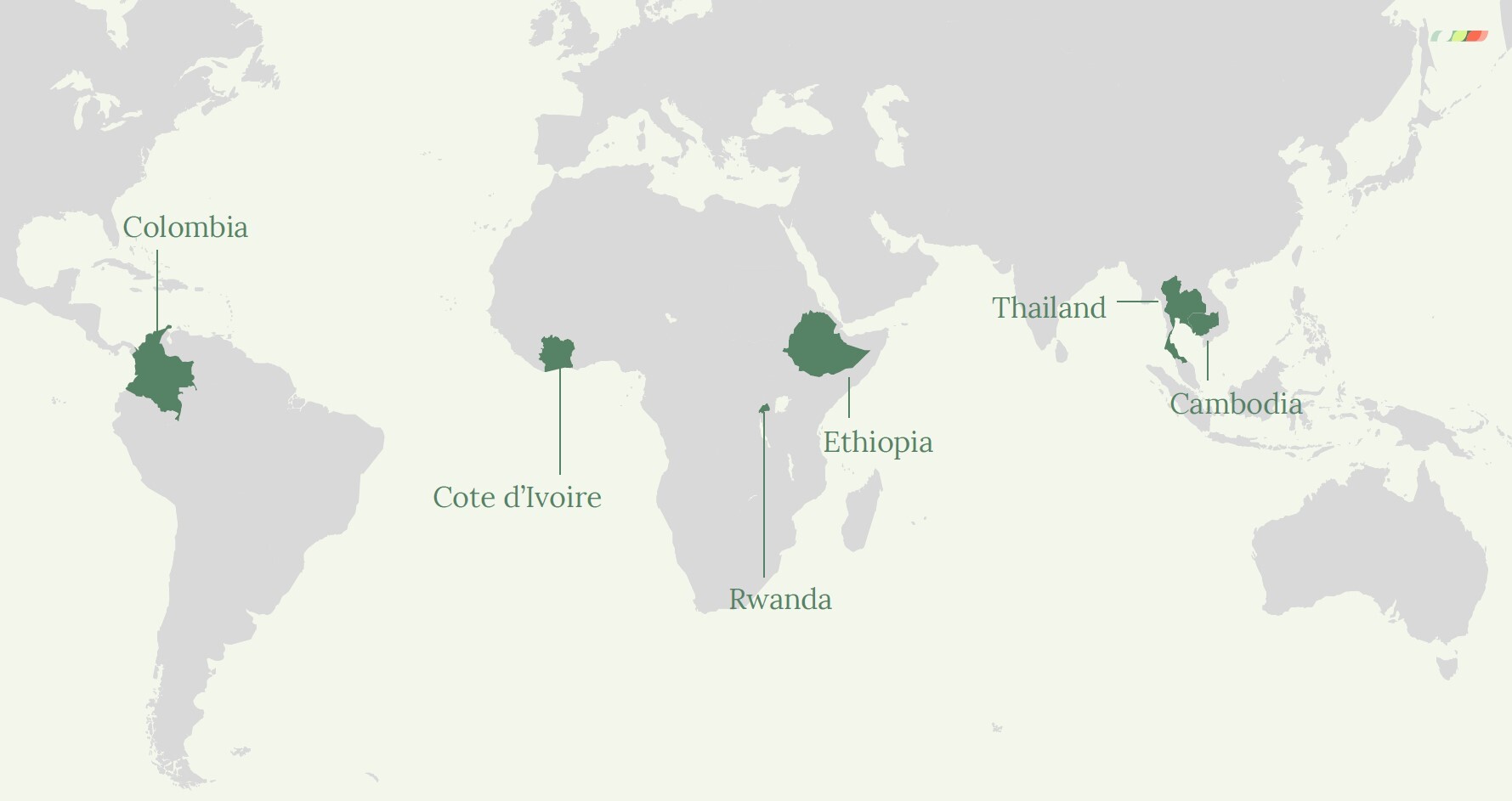
FIT for FAIR Partner countries
FIT for FAIR aims to enable partner countries to create a conducive legal-political environment allowing relevant supply chain actors to facilitate compliance with the German Supply Chain Act (LkSG), the EU Corporate Sustainability Due Diligence Directive (CSDDD) and the EU Regulation on Deforestation-free products (EUDR). By doing so, the project seeks to support access to the German and European markets for its partners.
Project implementation
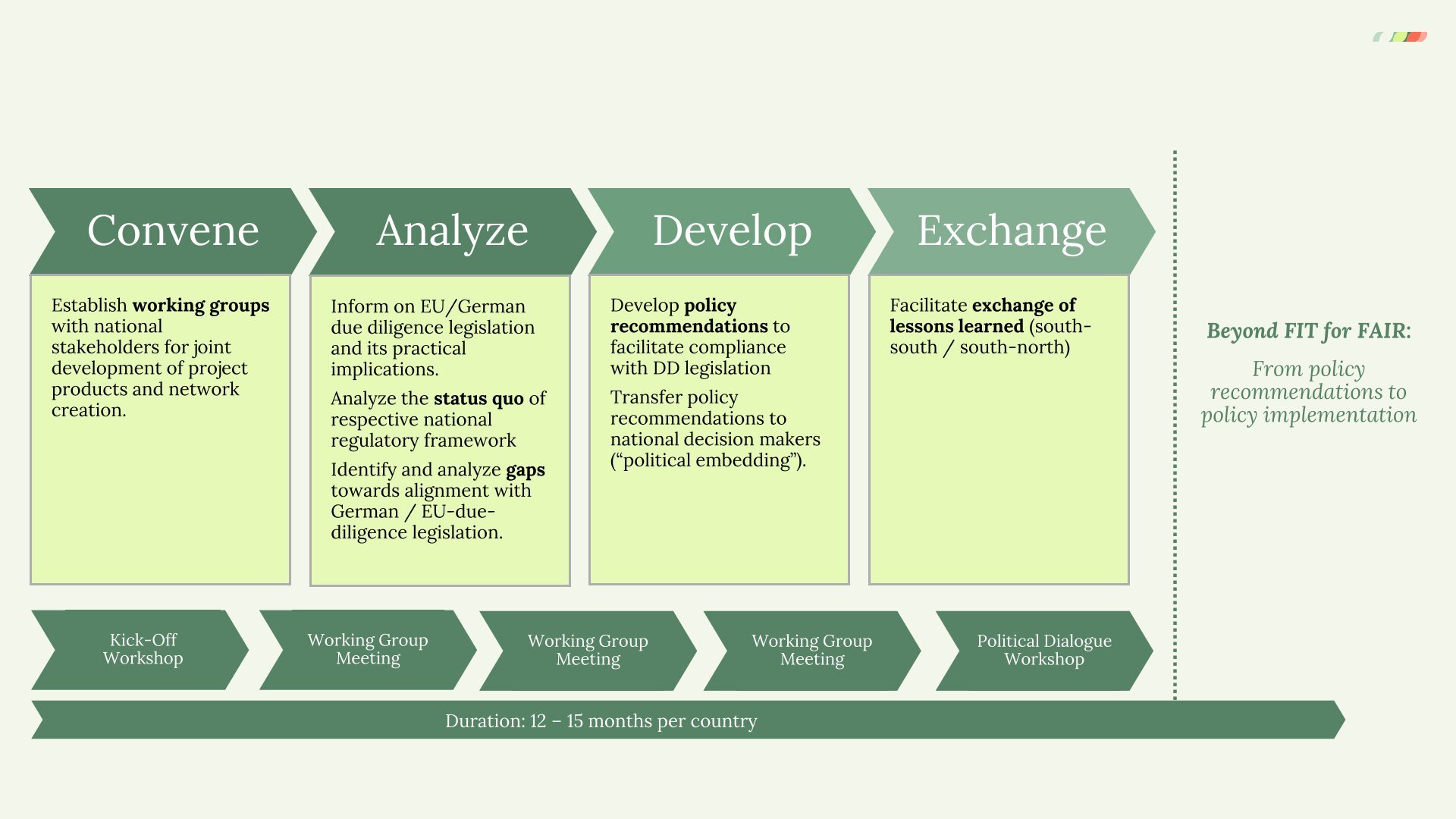
The project informs about the LkSG, the EUDR, and CSDDD. Furthermore, it analyses the current state of relevant and corresponding national legislative and political frameworks and compares them to EU and German due diligence legislation resulting in a gap analysis. Based on this analysis, policy recommendations to facilitate compliance with EU and German Due Diligence legislation are formulated and conveyed to decision-makers in the countries of project implementation. A special focus is given to creating a conducive environment enabling supply chain actors to create smallholder-inclusive supply chains. To enhance network creation and knowledge exchange, lessons learned are shared with European and German decision-makers.
Project partners
Political mandate and host organisations
The project’s host organisations provide expertise, facilitate and lead implementation, and document project activities. Governmental institutions ensure political backing, mobilize government actors, provide key knowledge, and adapt the national framework to due diligence requirements. Host organizations leading the FIT for FAIR project include the Conseil National des Exportations (CNE) in Côte d’Ivoire, the Ethiopian Coffee and Tea Authority (ECTA) in Ethiopia, the Colombian Confederation of Chambers of Commerce (Confecámaras) in Colombia, and the United Nations Development Program (UNDP) in collaboration with the National Agricultural Export Board (NAEB) in Rwanda.
FIT for FAIR Working Groups
Working groups are formed in each project country, engaging key stakeholders from government, civil society, farmer- and labor unions, the private sector, and R&D. Through workshops, members will share expertise, address challenges, and explore policy opportunities linked to creating conducive policies and legislative environment allowing compliance with EU/German due diligence laws. National and international experts provide guidance and support.
What has been achieved so far?
In March 2025, the first round of activities agreed with the partner was completed in Colombia. Led by the Colombian Confederation of Chambers of Commerce (Confecámaras), the project focused on identifying gaps between Colombia's national legislative framework and requirements of the EUDR, LkSG, and CSDDD through a status quo and gap analysis.
National and regional workshops with over 480 participations considered perspectives from producers, businesses, government, academia, and civil society in the coffee, palm oil, and cacao value chains. They project not only identified legal gaps between Colombia's national legislative framework and EU requirements (EUDR, LkSG, CSDDD), it also focused on practical gaps on the ground. As a result, a “Due Diligence Model for the Colombian Agricultural Sector” was developed, structured around four main components: (1) guidelines and standards, (2) tools and procedures, (3) capacity and knowledge building, and (4) collaboration among stakeholders. A roadmap with policy recommendations for short-, medium-, and long-term actions supports the model’s implementation. Follow-up activities will start in July 2025, which will be implemented jointly with both Confecámaras and Preferred by Nature. The focus will be on the mutual expectations and challenges of Colombian producers and exporters on the one hand and European companies on the other.
On July 3rd, the FIT for FAIR project in Côte d’Ivoire concluded after 18 months of collaborative work. Led by the National Export Council (Conseil National des Exportations – CNE), with support from GIZ and SASI, the project brought together voices from government, business, civil society, and academia to tackle pressing issues such as traceability, child and human rights, forest and environmental protection, and living income. A detailed analysis of the current political and legal framework recognized Côte d’Ivoire’s existing efforts—such as the cocoa traceability system, land-use map, and strong legal framework—but also identified key challenges, including gaps in law enforcement, limited land rights for women, and a lack of interoperability among traceability systems. The project—using a participatory, multi-stakeholder approach—culminated in a set of policy recommendations and a concrete roadmap, which were officially handed over to national decision-makers, including the Ministry of Trade and Industry and the Prime Minister’s Office, during the project's closing ceremony. To maintain momentum, the CNE has launched a Due Diligence Taskforce to steer the next steps and drive meaningful change.
In Ethiopia, partners are working with the Ethiopian Coffee and Tea Authority (ECTA) to develop policy recommendations. Following a kick-off workshop with nearly 40 participants, a multi-stakeholder task force was established, and three meetings were held with key actors from the government and the private sector. After the presentation of preliminary policy briefs to ECTA in July 2025, a comprehensive country report is expected to be finalized soon and will be presented during a validation workshop in October 2025.

The FIT for FAIR project is being implemented at a time when it is becoming imperative to rethink our practices, integrate sustainability standards into our value chains, and ensure that our products meet the new requirements of European markets. This is not a constraint, but an opportunity to transform our economy, preserve our forests, and promote sustainable development in Côte d'Ivoire.
Future prospects
The following results are expected as outcomes of the project process in each of the six partner countries:
- An assessment of the current state of the national due diligence framework, including legislation, standards, institutional setup, processes, strategic approach, and policy framework, has been completed.
- A gap analysis towards the alignment with German and EU due diligence legislation has been established.
- Policy recommendations and roadmaps have been developed and conveyed to national decision-makers.
- A self-sustaining network has been created, capable of supporting the process beyond the involvement of GIZ. It will facilitate the transition from proposed solutions to concrete policies enacted by national decision-makers.
- Experiences with operationalising due diligence in partner countries, including challenges and opportunities, are transferred back to European and German decision-makers.
More information
- Project Results in Colombia including the Gap Analysis, Roadmap and Model for Due Diligence in the Agricultural Sector: Alianzas Cooperación Internacional y Multilaterales - Confecámaras
- Project Results in Côte d’Ivoire including policy recommendations and roadmap (in French): RAPPORT D'ETUDES PROJET FIT for FAIR COTE D'IVOIRE - CNE
- Press Release from the National Export Council (CNE) on the Launch of FIT for FAIR in Côte d'Ivoire: LANCEMENT PROJET FIT FOR FAIR : La Côte d’Ivoire œuvre pour des produits d'exportation sans déforestation - CNE
- Video by Business24 Africa on the closing event (in French, with automatic English subtitles available): LUTTE CONTRE LA DÉFORESTATION : Des recommandations à la clôture du projet FIT FOR FAIR
![[Translate to EN:] iStock](/fileadmin/_processed_/1/e/csm_FitforFAIR_5cc5aa8b92.jpg)
